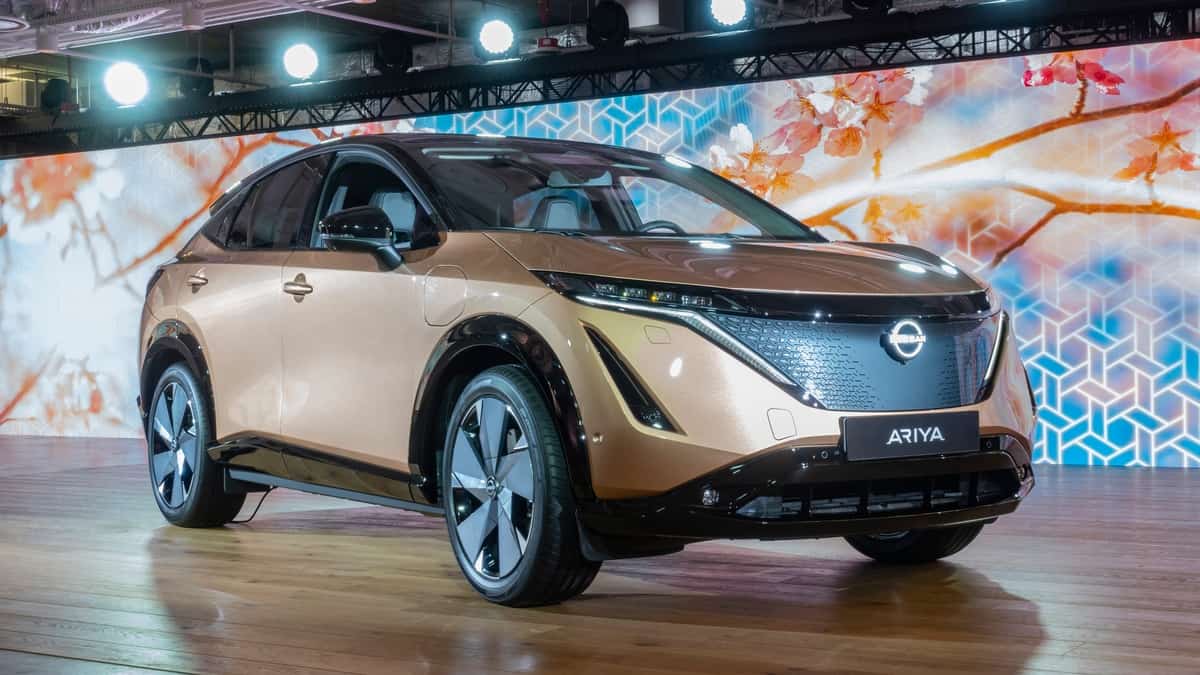The Nissan Ariya EV SUV from the Japanese automaker has been spotted on Indian roads in Maharashtra, suggesting that it was brought to the country to gauge customer reaction to the vehicle.
In international markets, the Nissan Ariya EV SUV sits above the Nissan Leaf EV and caters to the electric crossover segment.
Renault and Nissan revealed plans for a Rs 5,300 crore investment in the Indian market and the launch of two new EVs in the country after 2025.
Ariya – New EV SUV from Nissan
In international markets, the Nissan Ariya EV SUV competes with the Hyundai IONIQ 5 and Kia EV6.
The Hyundai IONIQ 5 and Kia EV6 have both debuted in India to positive reviews.
As a result, it makes sense for Nissan to bring the Nissan Ariya EV SUV (via Motor Beam) to the country and gauge public reaction to the EV. However, no launch date for the EV SUV has been confirmed by the automaker.
Internationally, the Nissan Ariya EV SUV has two battery pack options: a 63kWh unit and an 87kWh unit.
The smaller 63kWh battery pack is linked to an electric motor with 217hp and 300Nm of torque and a claimed range of 402km. The larger battery pack increases this to 242hp and 300Nm, as well as an assumed range of up to 529km.
Nissan also produces a higher-spec model with the same battery pack that produces 306hp and 600Nm of torque.
The Nissan Ariya EV SUV includes large 12.3-inch screens, a Bose premium sound system, a head-up display, 19-inch or 20-inch wheels, a luminous Nissan logo, LED lighting, driver assistance features, and has received a total five-star rating from Euro NCAP.
Renault-Nissan invested Rs 5,300 crore in India
Renault and Nissan JV have announced plans to invest Rs 5,300 crore in the Indian auto market and to introduce new ICE and EV models to both brand portfolios beginning in 2025.
The joint venture has announced plans to launch the Renault Kwid EV in India, built on the electric CMF-A platform. The electric CMF-A platform will benefit from strongly localized components, and the JV intends to compete with Tata Motors, Citroen, and upcoming Hyundai and Maruti EV products.
In addition, the companies plan to introduce hybrid technology in the country to power more oversized vehicles.
The new investment will also restructure the joint venture, changing the current 70:30 equity distribution that Renault Nissan Automotive India Private Ltd (RNAIPL) has split between Nissan and Renault.
The JV’s composition will be changed, with Nissan holding a 51 percent stake and Renault holding a 49 percent stake.
Nissan has announced plans to bring Solid State Battery technology globally and deliver it to the public by 2028.

